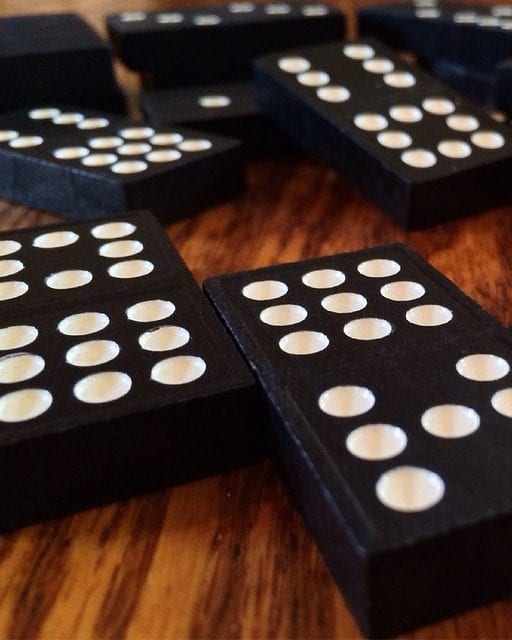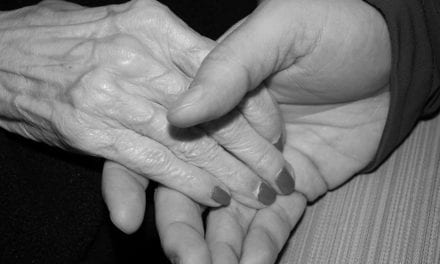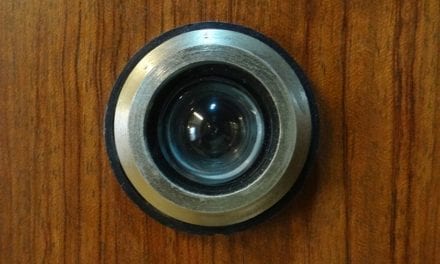Double Heaven
The dominoes were slick and black. They were professional gaming equipment, serviceable in color, their red and white spots aligned martially, in rows that suggested a deeper than numerical meaning.
Sylvia felt she was about to understand something that had once eluded her. She huddled against the vinyl bumper of the table. The Golden Dragon had instituted a smoking ban, but the bumpers still faintly exhaled the odor of long-ago cigarettes. The halogen-lit tables in the pai gow pit looked like six green felt islands floating in the air-conditioned darkness of the casino.
Sylvia had once been a freelance editor. People used to tell her, “I wish I could sit around and get paid to read romance novels all day.” She rarely corrected them, because she liked the image they conjured—a pink couch in a sun-dappled room, a fur throw, lurid plotlines and honeyed tea in a porcelain cup. But Sylvia’s life as an editor was far more pedestrian. She shuffled around her apartment in the same pair of sweatpants, trailing crumbs across the carpet. She went for days without speaking to anyone. She agonized over a single comma sometimes, taking it out and putting it back in again, afraid of subtle alterations to the text even she might not notice. Commas could be so controversial.
Sometimes, Sylvia felt incorporeal, like her entire existence took place in her head. The texts she edited hovered in the air before her like castles and vanished with the delete button. She and her clients emailed manuscripts back and forth—no more red pencil marks in the margins!—and her work tools were the insubstantial words and ideas that flickered across her screen or in her mind until other ideas and words replaced them.
But in the casino, life was tangible. And more than that, it was quantifiable and immutable. At the Golden Dragon, Sylvia encountered real physical objects meant to be manipulated according to specific rules. Objects had meaning at the Golden Dragon; each had a designated place and a definite purpose.
Casino supervisors watched every movement in the pit, judging its precision, demanding minimal variation from the optimal pattern someone had established decades earlier. It was financial choreography. Every move was some kind of monetary display—that the dealer hadn’t stolen, that the player had received the right payoff, that the chips represented the proper amount.
Beyond the glow of the lights, Sylvia could see the hemispherical cameras set into the ceiling. A little green light blinked next to some of them. In a darkened room someplace, someone watched every game.
~~~OOO~~~
Sylvia had been playing pai gow for three or four days straight. The dominoes seemed to vibrate when she looked at them now. She could add the spots on their faces almost before the dealer passed them to her. She was getting that good at the game.
The dealer swirled the dominoes around in a glistening black pile, mixing them before the final shuffle. The dominoes clicked gently against one another, those clicks like the sound of tumblers falling into place on the slot machines that surrounded the pit, like the sound of the chips rattling in their tray, and like the sound of Sylvia’s bones settling into place as she felt the game turning in her favor. Each click and rattle was the sound of money. Sylvia felt the beating heart of the game. Or maybe she felt her own heart—red, suppurating, fleshy and raw—suddenly alive with possibility.
The dealer deftly swept the dominoes into one rectangular mass. Then, he shuffled, a procedure so swift and precise that it seemed automated. The dominoes slipped and clicked together, now flat on the table, now in neat stacks of four, sliding over one another as the dealer whipped them into eight piles. No matter how many times Sylvia played pai gow and no matter who was dealing, the procedure was always the same—the same precise shuffle and the same clicking of the dominoes.
Nothing at the Golden Dragon ever changed. The casino was eternal. The absence of clocks and windows and natural light, of course, kept the addicted gambler from sensing the passage of time and leaving the table. But the achronology wasn’t what made the casino seem eternal. Instead, it was that the Golden Dragon made Sylvia feel perpetually young. The tables were always deep green. The walls were always muted burgundy. The lights were always the same. The employees were interchangeable and, hence, unaging. Because nothing around her ever seemed to change, Sylvia felt unchanged herself.
~~~OOO~~~
The dealer slid Sylvia her four dominoes. She pressed them into the felt of the tabletop, enjoying the way the thick padding resisted their dull, slick weight. Then, she held the dominoes, stacked and face-down, in her palm, trying to will a particular pattern of dots onto each one. She’d create a high and a low hand of two dominoes each, and if each beat the dealer’s high and low hands, Sylvia would win. In fact, if she had a particular combination of four dominoes, she would win the casino jackpot—a figure that increased constantly, the longer someone failed to win it. The casino displayed the figure on a digital screen just behind Sylvia’s head. She couldn’t see it at that moment, as she warmed the dominoes in her palm. But she knew the numbers kept scrolling, ever higher as she sat there.
Sylvia imagined the jackpot-winning four-domino combination. One hand had to be gee joon, the pairing of the wild six and the wild three that represented the highest hand in pai gow. On their own, these two wild dominoes were practically worthless, but together, they were the ultimate pair. The other hand had to be a pair of twelves, a formidable duo second only to gee joon.
The dealer nodded at her, a signal that it was time for Sylvia to display her dominoes. She flipped over the first one, moving so quickly that the dots were almost a blur. She had a six—the beautiful wild six that could sometimes be a three—and one half of the gee joon pair. But without the wild three, it was nearly valueless.
Sylvia held her breath and turned over the second domino, feeling the halogen lights burn down on her from above. She gasped: the wild three. She touched the domino again, just to be sure—one red spot and two whites. She had gee joon. It was the highest hand she could ever hope to get, and half of the jackpot winner. She had only ever imagined this hand. Sylvia gently rubbed the red and white dots that had become as legible to her as text. Because there was only one gee joon pair, Sylvia knew that no matter what the dealer’s high hand turned out to be, her hand would beat it. Gee joon was that powerful.
Sylvia’s next two dominoes, still unrevealed, would comprise her low hand. In order to win, her low hand would need to beat the dealer’s low hand. Otherwise, they would tie, and Sylvia’s excellent high hand would have done her no good.
And only one hand, the pair of twelves, would guarantee her the jackpot.
Sylvia revealed her third domino, warm from the heat of her hand. It was the twelve, two perfect rows of dots, red and white cunningly distributed among them. Sylvia had always loved the twelve, a symbolic representation of the Buddhist ideal. But she needed a second twelve to win.
Sylvia turned over the last domino: the other twelve. She slid it reverently next to the first twelve. The pair was called “double heaven.” It was the strongest low hand Sylvia could have, with gee joon in the high hand.
She had won. The dealer could have no other combination that would beat hers, and more importantly, she could claim the jackpot. Sylvia watched the dealer reveal his low-value, insignificant dominoes and then turned to look at the jackpot figure—the amount she had just won.
“Jackpot,” the dealer said quietly. He flicked a hand over his shoulder, signaling to the shift boss. Sylvia had always been an inconspicuous gambler. No shift boss had ever paid much attention to her quiet hands and minimal bets. Now, the shift boss looked closely at Sylvia’s hands and at those of the dealer and then murmured into her walkie-talkie. Sylvia knew she was calling the people who manned the ceiling cameras. She could almost hear the whirring of the mechanism as someone scrolled through its images to examine every detail of the game they had just played—the dealer’s shuffle, the distribution of the dominoes and Sylvia’s slow revelation of her hands.
She felt present in a way she never had before. Until then, her life had mostly passed unnoticed. Her actions affected others only slightly. She had only left a written record of herself. But now, her impact was numerical, financial, part of the visual history of the casino.
“Don’t touch the dominoes,” the shift boss told Sylvia. They waited while the camera performed its surreptitious operation.
Then, the shift boss nodded crisply at the dealer. The dealer nodded back and reached into his chip tray, counting out stack after stack of hundred-dollar chips. He set the chips into motion with gentle, clicking efficiency, each representing a loss that the casino registered from overhead. Sylvia had never touched chips of this value, and she watched as the dealer pushed the little towers of money over to her. “Congratulations,” he said, “and good luck.”
Without turning again to look at the jackpot sign, Sylvia could feel its numbers draining back down to zero. The former value of the jackpot sat in front of her, in several neat little stacks.
She scooped up the chips and started to leave the table. She would cash out and go home.
But the dealer had begun to shuffle again. The dominoes were so slick and black, and they clattered against each other so beguilingly.
Sylvia’s heart pounded. How difficult would it be to get another double heaven? She had done it once already. The dealer was lucky. The night was lucky. Sylvia was young, and time stood still at the Golden Dragon.
Sylvia sat quietly for a few moments, enduring the burden of her victory.




















